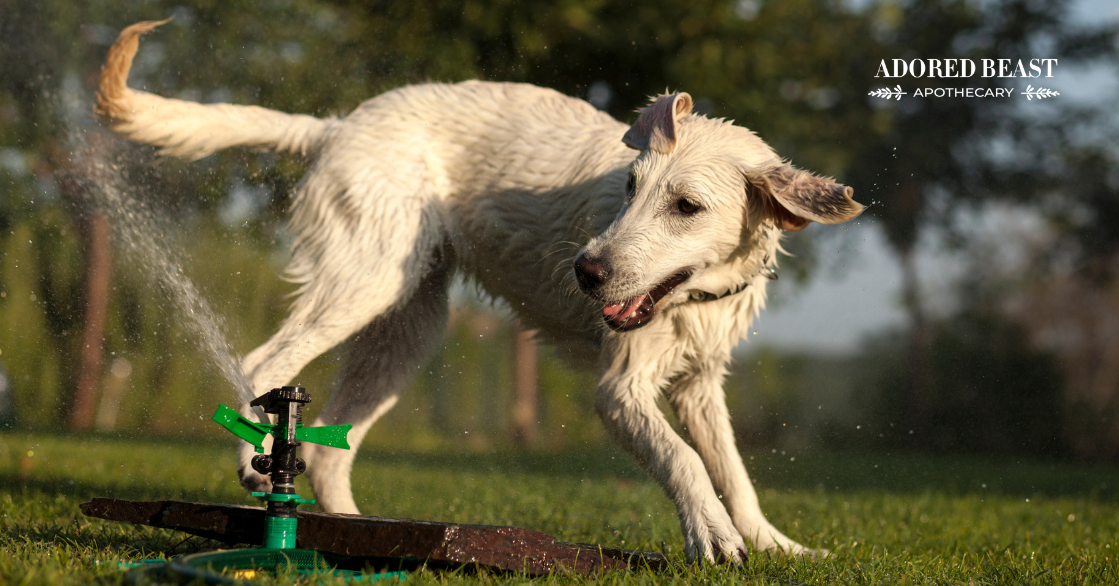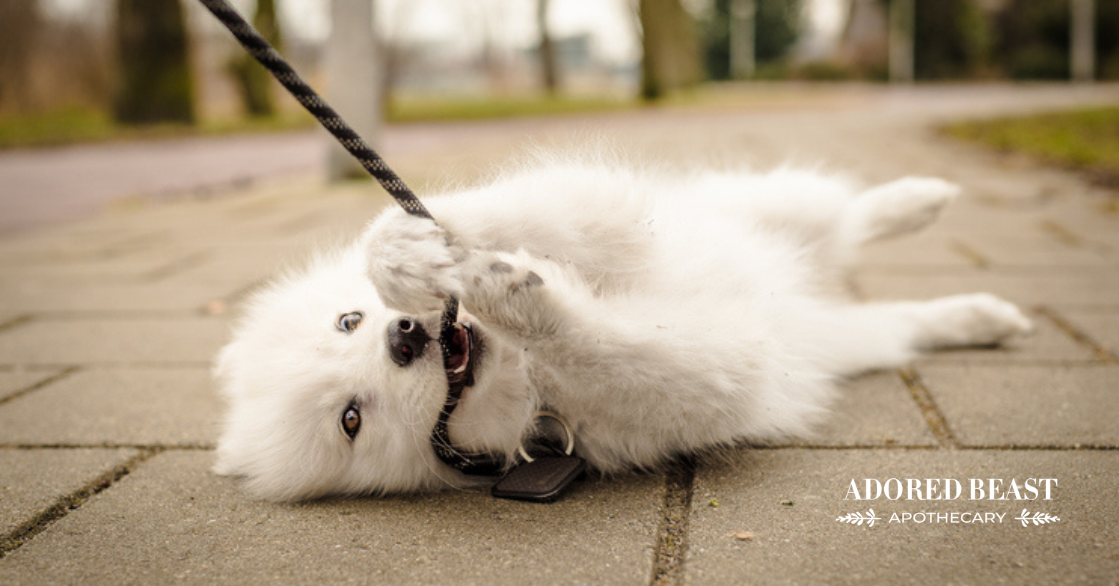When the weather heats up, some of us can’t wait to get outside and soak up the sun. We don’t care how hot it gets, just bring on the heat!
Unfortunately, our dogs don’t feel the same. And often they’re not going to tell us, or even stop what they’re doing, to let us know the heat’s getting to them.
We all need to be voices for our dogs, and when it’s hot out we need to pay special attention to our pets.
Heat stroke in dogs is a very real danger. Recognizing the signs is important for any pet parent, as is knowing what to do when you suspect heat stroke is at play.
Signs of Heat Stroke in Dogs
When your dog gets hot, there are a couple ways her body cools her down:
- Panting – panting causes moisture to evaporate from the tongue, nasal passages, and the lining of the lungs, which cools the body as air passes over the moist tissue.
- Blood vessel expansion – blood vessels, especially in the ears and face, expand, moving overheated blood closer to the surface to cool it down.
**Dogs do sweat, but just from their paws, and not enough to make a difference.
When your dog’s body temperature gets above 105F, problems start to occur. With heat stroke, the high temperatures inhibit the body’s ability to dissipate heat, and it can’t keep the temperature regulated. If you don’t bring the temperature down, both short and long term health impacts can be the result. This can include death if you don’t act quickly!
So, you need to know what to watch out for!
There are several telltale signs that a dog is experiencing heat stroke. As it gets worse, these symptoms will increase in severity.
Signs of heat stoke in dogs include:
- restlessness
- excessive panting
- drooling
- reddened gums
- vomiting and/or diarrhea
- lethargy
- uncoordinated movement
- not responding
- tremors
- collapse
- death
Every single person who came to see Julie at her clinic was an impeccable pet parent, and they loved their animals dearly. But in her time at her clinic, she knew over 100 dogs who died of heat stroke. It can happen so quickly, and can be fatal. It is so important to be vigilant.
What to Do if You Suspect Heat Stroke
If you do suspect your pet may have heat stroke, take action quickly. Heat stroke in dogs can progress rapidly, so you don’t want to take your time.
***If you are concerned, call your vet right away!
In the meantime:
- Take them inside into the cool right away
- Place them in an area with a fan blowing on them gently, or in an air conditioned room
- Give arnica and aconite 200C
- Using cool, not cold, water, sponge or hose your pet’s entire body, paying particular attention to the underside
- Allow your pet to drink water, cool again, not ice cold, but don’t force it
- Don’t place anything (ex. cold, wet towels) on your pet – this traps the heat in
- Call your trusted veterinarian immediately for next steps
If they’re in the later stages (lethargic, tremors, unresponsive, uncoordinated, severe vomiting and diarrhea) – DO NOT WAIT. Go to the clinic immediately.
How Hot is Too Hot?
We hear this all the time: how hot is too hot for a dog to walk? Or, how much time in the sun is too long?
And unfortunately, we can’t answer that. Every dog is different. In our house, we have 3 large dogs – and all 3 have different tolerance levels. It’s vital to assess your pet, and watch them closely for signs that the heat is too much. Or use your best judgement. If it’s too hot for you, (if only shorts and a tank top are comfortable), it’s definitely too hot for them. Err on the side of caution, always.
At home, if you don’t have air conditioning, make sure those fans are going, keep windows and curtains closed. Look into a cooling bed. Make sure your animal is able to escape the heat.
Watch your dog. If you’re walking, and you have to drag your dog behind you – even a teensy bit – it’s too hot! This is important for all dogs, but is even more vital for senior dogs and puppies – both have a much lower tolerance of the heat.
On hot days, if you can, set up a kiddie pool in the backyard and fill it with water. Put an umbrella over it to keep it cool. You can also turn the sprinkler on for a little bit and encourage them to play in the water.
And with walking, always test the pavement. If you can’t hold your hand on the pavement for 30 seconds, your dog will be in pain after just a few minutes walking. Pick a different time to walk, and walk in a grassy area.
We all know that leaving a dog in a car for even a few minutes can have devastating effects. But, that car isn’t the only place heat can get to your pet. When the sun is blaring down and the temp keeps rising, it’s time to consider the effects on your animal. Avoiding heat stroke in dogs (all animals in fact), and keeping our pets cool as cucumbers, should be a summertime goal we all appreciate!












![[RESEARCH] Is Herbicide Safe for Dogs?](https://blog.adoredbeast.com/wp-content/uploads/2025/06/herbicides-safe-for-dogs-103x55.png)